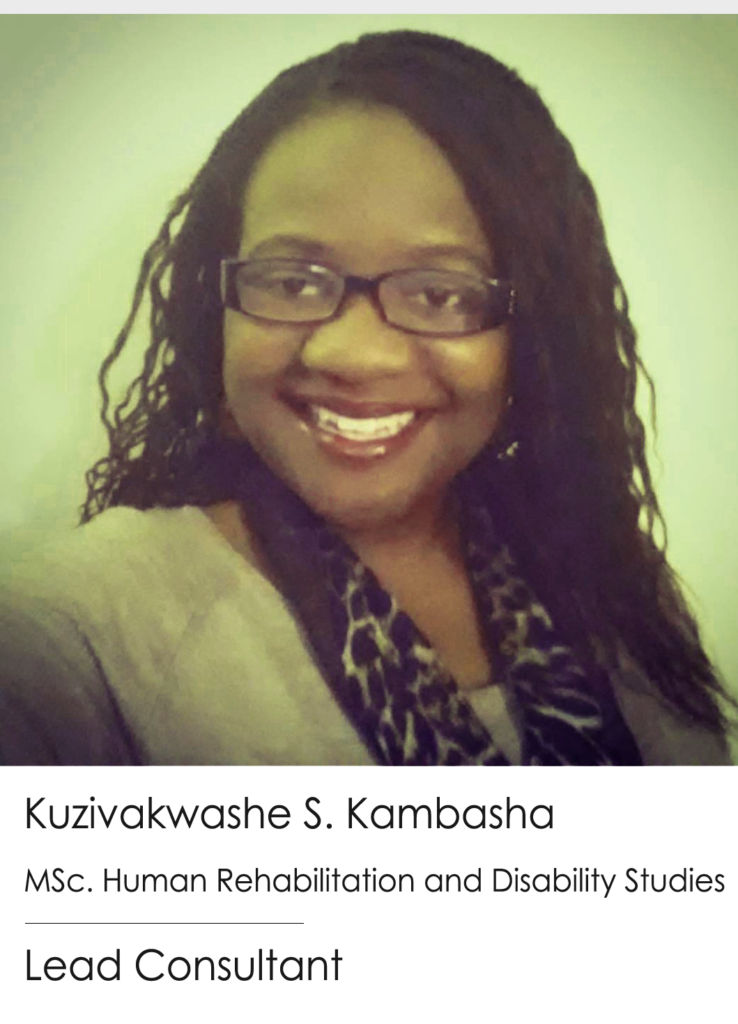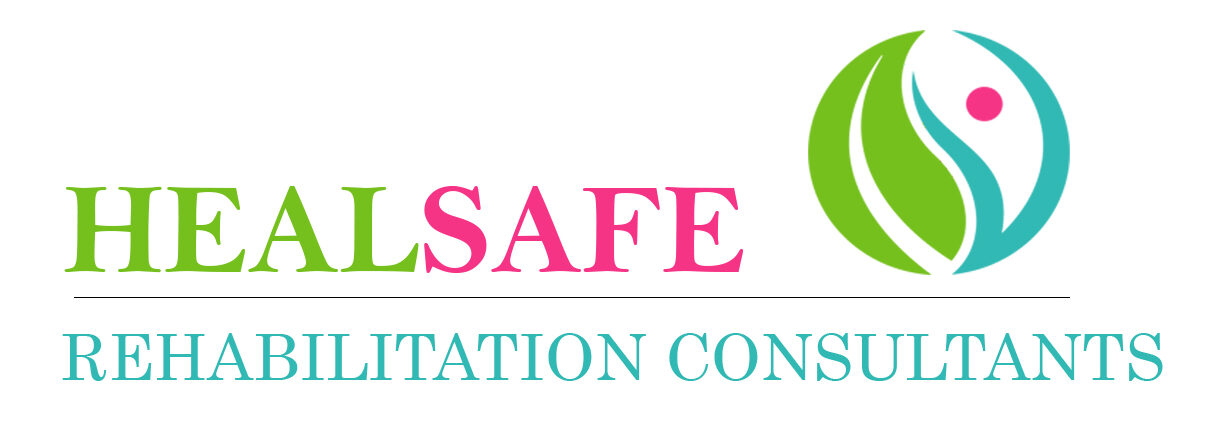
Why we do what we do
Kuzivakwashe S. Kambasha- Founder, Lead Consultant
I am a certified Rehabilitation and Disability Consultant, with a BSc in Molecular Biology and Chemistry from Eastern Oregon University, and a Masters in Human Rehabilitation and Disability Studies from Stellenbosch University. I studied a 2-year Physiotherapy Assistant Program from Norquest College and I am trained in both Adult and Child First Aid through St Johns Ambulance- Calgary Centre. I have over 5 years of experience working with adults and children with disabilities in the U.S, Canada and Zimbabwe.
In 2013, Zimbabwe signed and ratified the United Nations Convention on the Rights of Persons with Disabilities (UNCRPD) which is currently the main international instrument for advancing the human rights of Person with Disability. It is therefore our job as Rehabilitation professionals to take effective measures to ensure our clients have the tools they need to gain full independence during their recovery at home with their families.
What Does A Rehab Consultant Do?
- Rehabilitation is a process that is designed to assist people with disabilities in accomplishing their goals and in achieving independence and full participation in all aspects of community life. Therefore, an RC works hand in hand with Physio- and Occupational Therapists in assisting clients during and after they recover from surgery or an injury, by going out into the patients’ environment (home, work or school), advising them on how to manoeuvre the space with their assistive devices (rehabilitation aids).
- An RC addresses any special accommodations the patient needs at their home, job or school with caregivers or the institution, and assists the client with returning to these environments with their assistive device safely. As a patient adjusts to life with their assistive device, an RC’s job is to assist and ensure their environment is safe, and they are utilizing the assistive devices correctly and are not doing anything that could potentially aggravate their injury or harm them further after they have recovered.
- RC’s help address all self-care risk factors which may affect a patients ability to recover safely.
- RC’s train clients to develop and use their new and existing rehabilitation skills in different ways to accommodate their physical abilities or limitations.
- RC’s also make assessments of the vocational ability of each client and also utilize further resources to help them remain at their job.
